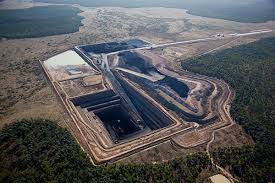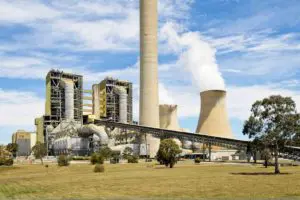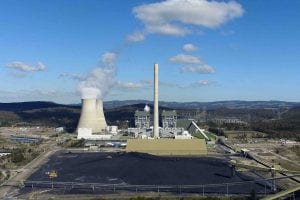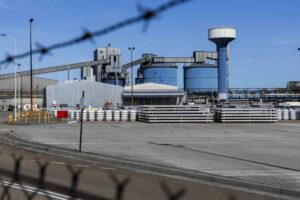Queensland’s Labor government has angered green groups and flown in the face of economic analysis, after green-lighting the controversial plans of two Indian companies to exploit the huge untapped coal resource in the state’s Galilee Basin.
If approved federally, the multi-billion dollar plans of Adani Group and GVK could result in the development of nine new mega coal mines in Queensland’s Galilee Basin, along with the associated rail and port infrastructure necessary to convert Abbot Point – which abuts the World Heritage-listed Great Barrier Reef – into a coal shipping superhighway.
The state government’s approval has confounded green groups, who had hoped for a harder line on fossil fuel development in the state than that of the previous Liberal government, which – having unabashedly backed big coal – was unceremoniously dumped in the January election.
Led by Anastacia Palaszczuk, the ALP came to power in Queensland less than one month ago on the back of a commitment to remove state subsidies for the Galilee coal and associated rail projects, ban Reef dumping, and ensure no dredging was undertaken at Abbot Point prior to financial close on any project.
But on Wednedsay – after announcing the withdrawal of plans to dump dredge spoils dangerously near to the Reef – state development minister Anthony Lynham described the Galilee coal projects as “vital” to the state’s economy, and said the government would do everything it could, short of providing funding, to promote them – including pushing for federal environmental approval for the new dredge dumping plan within the next four months.
Palaszczuk described the deal as an “environmentally sustainable and fiscally responsible” proposal for the expansion of the Abbot Point Coal Terminal. She described it as “the only responsible way to proceed with the Abbot Point development to ensure it is ready for future exports from the Galilee Basin.”
Green groups have reacted swiftly, arguing that the new dredge proposal, though better than the old one, remains unacceptable, particularly considering it is for purposes of digging up, shipping and burning coal – the biggest threat to climate change.
“Any new proposal to pave the way for more coal mining is simply offensive,” said Greenpeace Reef campaigner Shani Tager.
“Premier Palaszczuk’s plans will pave the way for construction of up to nine new coal mines, accelerating climate change and ocean acidification – processes that will turn the Great Barrier Reef into a coral graveyard.
The Australian Greens, meanwhile, have responded to the news by calling on the Australian Securities and Investments Commission to investigate the ownership of the Abbot Point coal port and Carmichael coal mine projects.
“I’ve written to ASIC seeking an urgent investigation into which entity owns these massive projects threatening our Reef and climate,” Senator Larissa Waters, Australian Greens environment spokesperson, said in a statement on Thursday.
“They appear to be handing over the safety of the Reef to shell companies registered in Singapore and the Cayman Islands,” Waters said.
“Both Labor and the Liberals so are wedded to coal, rather than transitioning to renewables, that they’re looking the other way on Adani’s murky ownership and taxation arrangements.
Certainly, Labor’s unexpected support of the coal projects flies in the face of analyst warnings that the proposed mines are, quite simply, uneconomic.
As energy analyst Tim Buckley wrote here in January, the election result had been expected to return the focus of Adani’s $15 billion Carmichael proposal to the “key questions of financial viability and strategic logic in the face of the structural decline of seaborne thermal coal markets.”
Buckley, who describes the commercial viability of Adani’s Carmichael proposal – without government support – as “highly questionable”, has long argued that there is no market for Gaililee coal, not even in energy poor India.
“The 60 per cent decline in coal prices over the last four years reflects significant oversupply and weaker than expected demand,” he said.
“Flooding the seaborne coal market with a further 30% increase in global supply is against Australia’s national interests.”
It is also against the interests of many of Australia’s major trading partners, he adds, to mine the remote and lower quality coal of the Galilee Basin in the face of increasing global action on climate change.
Indeed, a total of nine global banking groups – including US giants Citigroup, Goldman Sachs, and JPMorgan – have formally declared they will not finance the proposed coal projects and export terminals in light of the associated environmental and economic impact.
And in China, where some predict demand for imported coal could halve by 2020, the huge popularity of a new documentary about air pollution has moved analysts at Merrill Lynch to warn investors about the film’s potential impact on coal miners and generators, if it leads to increased Chinese government efforts to reduce coal consumption and promote alternative energy.








